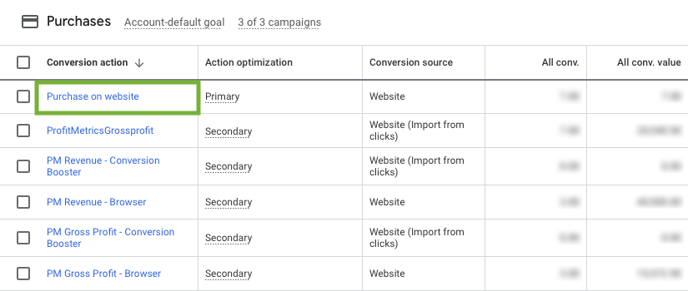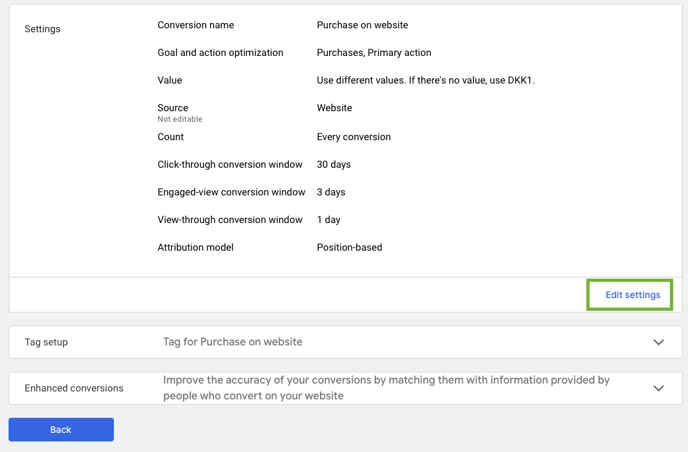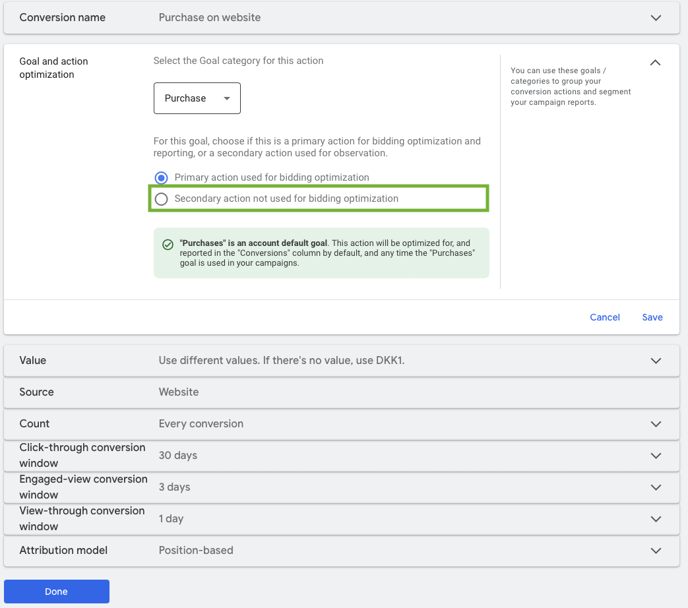How to use POAS bidding in Google Ads
Switch to profit conversion action as primary and run Pmax and smart bidding campaigns based on profit and POAS.
Once you've enriched Google Ads with gross profit data and have a viable data foundation (min. 100 conversions, preferably more), you can make the switch to POAS bidding.
Once these steps are done, your Google Ads campaigns will be optimized based on gross profit data instead of revenue.
How to make the switch to POAS bidding
1.. Go to your Google Ads account and select Tools and Settings > Conversions
2. Click on the name of your current primary conversions action

3. Click on Edit Settings

4. Change Goal and Action optimization from Primary to Secondary
In Google Ads, there are two types of conversion actions:
1. Primary Conversions - Applied in standard columns and for Pmax and Smart Bidding.
2. Secondary Conversions - Can be applied for monitoring in custom reports and as an alternative goal in custom goals. Secondary conversions are NOT used in standard columns, Pmax or Smart Bidding.

5. Now take the same steps for the ProfitMetrics conversion action you wish to apply for POAS bidding and set it as Primary Action. Once done, you have switched to POAS bidding and all of your Google Ads campaigns will now be optimized based on gross profit performance.
To apply our Conversion Booster for POAS bidding, you need to set both "PM Gross Profit - Browser" and "PM Gross Profit - Conversion Booster" as Primary Conversion Actions.
They are complementary and do not include the same conversions
6. After the switch, the tROAS input field is effectively a tPOAS field (the naming will not change of course). This means that the target must be set to a POAS level e.g. 150%.
We recommend that you make a gradual shift from tROAS to tPOAS i.e.:
1. Make no changes the first 24 hours after making the switch
2. Split the difference between your current tROAS and planned tPOAS into three, and deduct the amount over the course of three days
3. Monitor CPC for sudden increases. If CPC increase more than usual, half your budget to avoid overspend.